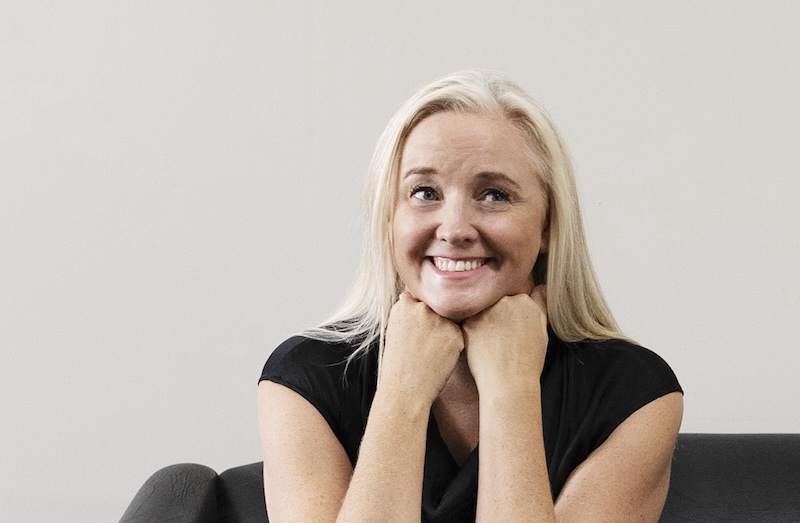New research highlights wider effects of
budgetary pressures
The current economic
uncertainty is affecting more than New Zealanders’
pockets, according to the latest Southern
Cross Healthy Futures Report, with the cost of living
crisis directly impacting both physical and mental
wellbeing.
Southern Cross, in conjunction with
research partner Kantar (formerly Colmar Brunton), has
spoken to more than 5,000 New Zealanders since 2019 to
inform the biennial study, which shines a light on the
nation’s physical, mental, and social health and
wellbeing.
According to the latest results[1],
budgetary stresses are affecting New Zealanders in a variety
of ways, from changing how they purchase food and prepare
meals to impacting their sleep and exercise
patterns.
With 93 per cent of people noting the cost
of living as their highest concern – a figure that’s up
seven per cent since the last Healthy Futures report in 2020
– Chief Medical Officer of Southern Cross’ insurances
arm, Dr Stephen Child, said it’s no surprise that so many
health and wellbeing behaviour changes can relate back to
financial pressures.
“While our inaugural Healthy
Futures Report in 2020 found that the influences on New
Zealanders’ health and wellbeing were increasingly varied,
this latest research shows how firmly global economic
pressures are trickling down to impact so many parts of our
lives,” he said.
“The cost of living, combined
with the stress and anxiety that comes from such financial
uncertainty, influences people’s nutrition choices, the
amount of sleep we get, and finding the motivation or energy
for exercise.
“Of course, this then affects physical
health, which in turn further impacts mental health or vice
versa – and so a detrimental wellbeing cycle is set in
motion that can be difficult to bring back to equilibrium.
As a nation, these results are concerning.
“Certain
demographics are feeling the pinch more than others. People
living with disability or illness are most likely to be
concerned about their financial situation which leads to
worries about being able to afford to be healthy and having
their sleep disrupted by anxiety or stress. The report also
shows significant financial impacts being felt by university
students, young families and caregivers,” said Dr
Child.
The Healthy Futures Report shows most New
Zealanders (79 per cent) now perceive healthy food to be
expensive, up seven per cent from 2020.
In a likely
response to these rising prices, people are increasingly
planning meals in advance, cooking more from scratch,
reducing portions/calories, and reducing the amount of meat
and sugar in their diets. This is more common among older
adults and retirees who may be feeling the pinch of
financial pressures. There are also fewer people drinking
alcohol, with 38 per cent saying they don’t consume any at
all – up four per cent on 2020.
Meanwhile, more than
half of New Zealanders still feel they’re not getting
enough sleep, at an average of 6.94 hours per night. The
main reasons people identified as impacting their sleep were
having a high mental load and feeling anxious or
stressed.
As far as those anxieties go, global events
and issues like the economic impact of Covid-19 are the
number one issue affecting the emotional wellbeing for two
thirds of New Zealanders (66 per cent), rising 16 per cent
in two years. Sixty-three per cent of people are also
worried about whether their children will cope with the
pressures of life – an increase of eight per
cent.
The widespread effects of the cost of living can
also be found in other areas of the report. Cost was
identified as the biggest barrier to accessing healthcare
services by 34 per cent of people. This is especially the
case for university students at 59 per cent.
Dr Child
says the research shows many New Zealanders are aware of
what good health and wellbeing looks like but are concerned
about how they can achieve that in the current economic
climate.
“Southern Cross launched this research to
better understand New Zealanders’ attitudes and
behaviours, and to use the insights to help people actively
advance their health and wellbeing. We want to provide more
access to health and wellbeing education, skills and
resources that are relevant to people, no matter what their
life stage is or how far along their health and wellbeing
journey they are.
“Southern Cross has been caring
for New Zealanders for more than 60 years and we believe
they should have ongoing access to health and wellbeing
options for themselves and their whānau. We hope that
shining a light on the issues that matter most to New
Zealanders, and offering relevant health and wellbeing
support, will help people to feel empowered amidst the
ongoing financial and health challenges facing our
communities,” said Dr Child.
Southern Cross Healthy
Futures Report 2022 – Key
Insights
Emotional
wellbeing
· Although the majority of New
Zealanders are happy with their mental wellbeing, there has
been a slight dip in the past two years – down two points
to 62 per cent.
· Increasing concerns about global
events are affecting the emotional health and wellbeing of
New Zealanders (up 16 points to 66 per cent), and 63 per
cent of people also worry about whether their children will
cope with the pressures of life – up eight per cent in the
past two years.
· The cost of living is the single
biggest issue for 93 per cent of people (up from 86 per cent
in 2020), 89 per cent are concerned about the economic
impact of Covid-19, while 85 per cent are concerned about
affordable housing.
Healthy
habits
· The average New Zealander
exercises for 30 minutes, three times a week. Energetic
housework remains the most popular form of exercise (at 39
per cent), while gym memberships and team sports have dipped
(down two per cent and three per cent, respectively), likely
due to Covid-19 restrictions and budgetary
considerations.
· Most New Zealanders perceive
healthy food to be expensive, increasing from 72 per cent to
79 per cent.
· The number of people cooking from
scratch and meal planning have both increased four per cent
since 2020, to 58 per cent and 64 per cent,
respectively.
· 38 per cent of people say they
don’t consume any alcohol, up four per cent from
2020.
Seeking care
·
The number of people seeking general health and wellbeing
information from friends/whānau and websites/online
articles has dropped in the past two years – down 16 per
cent to 30 per cent and 13 per cent to 50 per cent,
respectively.
· Health professionals such as GPs
remain the most trusted source of health information when
people are physically unwell, but the number of people
turning to pharmacists for advice when they’re sick has
doubled in two years – up 11 per cent to 22 per
cent.
· Healthline and other helplines have also seen
an increase in people contacting them, up six points to 16
per cent, likely due to the significant role they’ve
played during the pandemic response.
· Cost remains
the biggest barrier to accessing healthcare services (34 per
cent), even more so for university students (59 per cent).
Twenty-five per cent of New Zealanders say long wait times
are also a barrier to receiving
healthcare.
© Scoop Media




















Discussion about this post